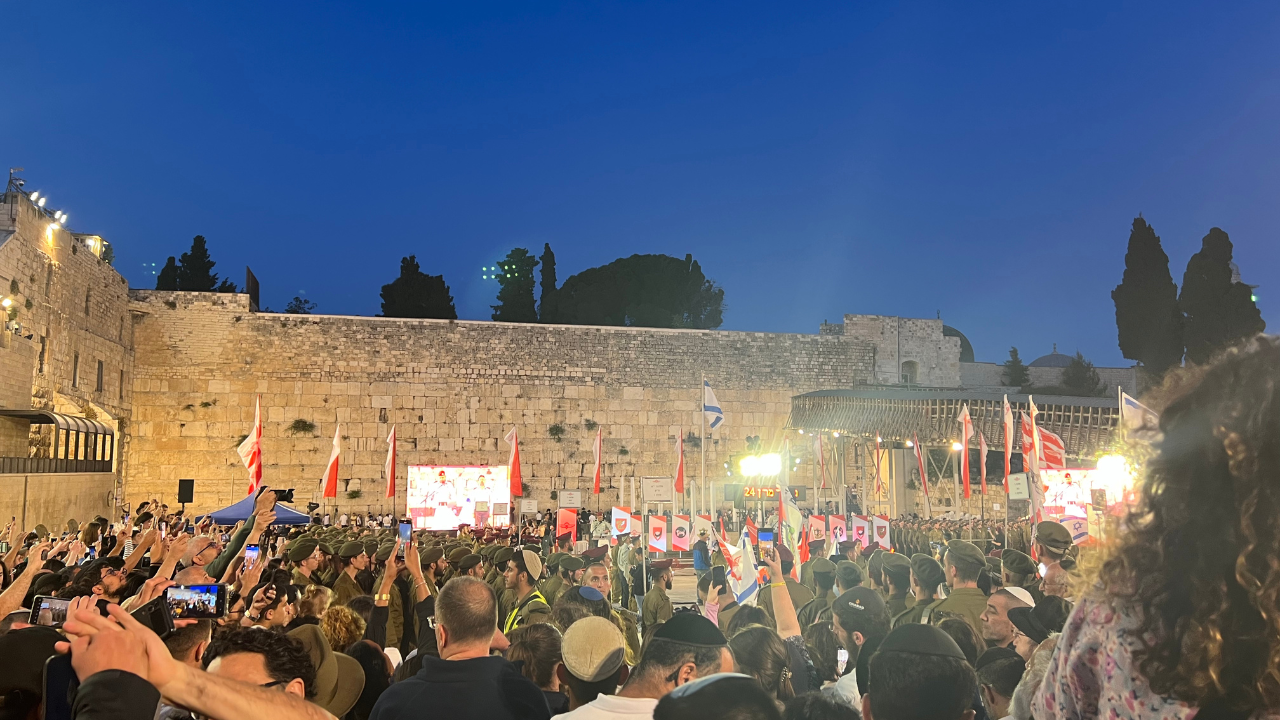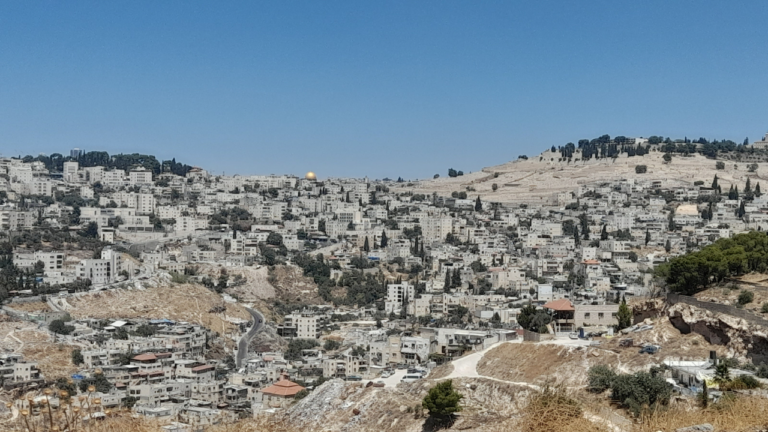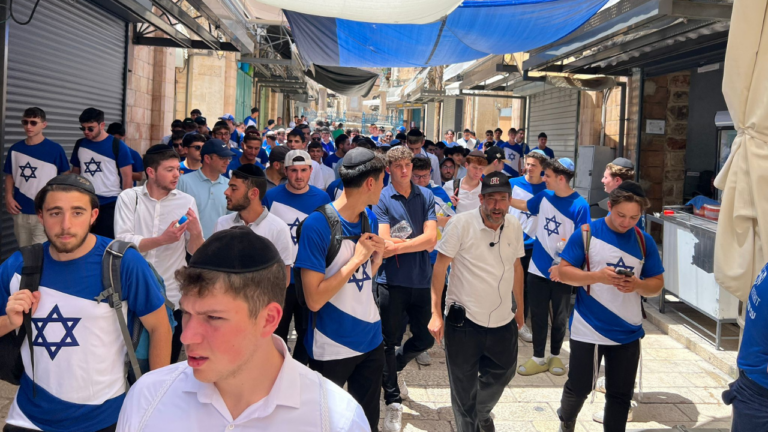Sinai and Moriah: Klal Yisrael Unites
Over the past months, I have written much about Jerusalem’s unique capability to unite Jews and bring Klal Yisrael together. As all Jews ascend to the makom HaMikdash for the festivals, even the amei ha’aretz are considered to be chaveirim, friends and colleagues, of the Torah scholars. On the regalim in Jerusalem, the normal boundaries of ritual tumah did not separate Jews. Jerusalem is the sukkat Shalom, the canopy of peace under which one never felt uncomfortably crowded or crushed by the throngs of Jews present. It is the ir shechubrah la yachdav, the city that binds the tribes of Israel together into a singular unit.
But why Jerusalem in particular? How does the city accomplish such an impressive feat?
To answer this question, we must have a deeper understanding of the spiritual nature of Am Yisrael. In halacha, we possess a concept called arvut. Essentially, every Jew is responsible for the acts performed by another. We suffer together and we triumph together. The midrash (Vayikra Rabba 4:6) quotes a beautiful parable of Rebbe Shimon bar Yochai. Once there were a group of individuals travelling on a boat. One of the travelers took out a drill and began boring a hole underneath his seat into the hull of the ship. His companions began to scream at him to stop. The vandal sharply retorts, “why do you care? The hole is under my spot. It’s none of your business what I do with my space!” The foolishness of such a claim is patently obvious when it comes to a ship. But Rebbe Shimon reveals to us that all of Klal Yisrael are also one large boat, one singular body. Every single mistake or rectification that a Jew enacts has massive reverberations for the entirety of the nation.
This relates to our unique spiritual reality. The sefarim hakedoshim (holy and esoteric writings) reveal to us that all Jewish souls stem from the same essential source. In the heavens, our souls are bound together as a singular unit in the sod of Knesset Yisrael (see Nefesh HaChayim 1:17). As our souls descend into the physical realm, the levushim of this physical universe necessitate an artificial split of this one supernal soul into many physical bodies. As human beings bound by space and time, our souls must enter distinct bodies while still maintaining their common root source in the supernal realms.
With our souls deeply submerged into a physical world of separation, it is easy to lose sight of the spiritual reality of yichud, achdut of Klal Yisrael. We are all different reflections of the same supernal soul. This is not to dismiss our differences. Quite the opposite. Every Jew is an essential expression of some part of Knesset Yisrael. Without his or her unique contribution, there is a gaping hole in the bottom of our ship. Klal Yisrael needs unity, not uniformity, to achieve its destiny.
Given our discussion about Torah and Yerushalayim over the past few weeks, it becomes obvious why Jerusalem is the ultimate place to achieve this unity. As the illusion of this physical universe weakens, a Jew can sense the shared cosmic destiny with his people. Even more so, Jerusalem’s “gateway” to the higher realms allows a Jew to connect with the spiritual reality of Knesset Yisrael. The physical separations between us and our technical differences no longer interpose between the various parts of the guf echad of Klal Yisrael. Rather, a deeply rooted sense of appreciation for the essential contribution of every Jew to Knesset Yisrael is achieved.
Har Sinai had the same effect on the Jewish people. As Bnei Yisrael encamped around Har Sinai, the Torah famously refers to the Jews in singular, vayichan sham Yisrael. Rashi explains that we were k’ish echad b’lev echad, like one man with one heart. Indeed, this is the spiritual reality of Klal Yisrael. But it took Har Sinai, which would become the conduit for Torah to descend from the highest realms into our physical world, to reveal this reality.
May the mountains of Sinai and Moriah again unveil the spiritual reality of this universe speedily in our days.



